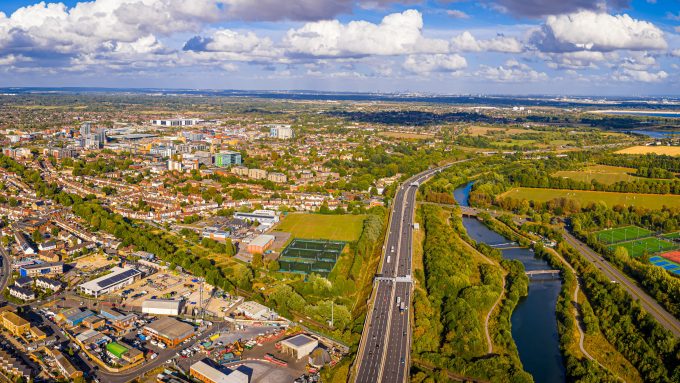
Speed up zero emission vehicle usage across cities or risk missing decarbonisation targets, report urges

A more cohesive approach to accelerating the uptake of zero emission vehicles – from buses and cars to bikes and scooters – across the UK’s city regions is vital if ambitious city-wide and national decarbonisation targets are to be achieved, a new report urges.
Transport is the single biggest contributor (by sector) to UK greenhouse gas emissions, responsible for 27% of emissions, with 91% of this from road transport*. Decarbonising transport will therefore be vital if the UK’s national target of net zero emissions by 2050 is to be met, as well as city region’s own net zero ambitions, of which target dates range from 2030 to 2048.
The report sets out the challenges city regions face in decarbonising urban vehicles, which includes private vehicles as well as public sector fleets, and also the opportunities to overcome barriers and make real progress.
The challenges, examined across six themes (see notes to editors), range from staffing capacity at local authorities, a lack of cohesive national policy and the absence of strategic and coordinated funding, whilst opportunities are presented in further devolution of powers to city regions, innovation and infrastructure design.
The report also sets out a roadmap detailing how the journey to net zero by 2050 is achieved through each of the six themes.
The report concludes by saying, ‘The Government has made decarbonising vehicle fleets a policy priority and made significant funding available for this task. However, the report finds that there is a need for greater cohesion of national policy with less fragmentation between both the approach taken to different transport modes (cars, buses, taxis, new mobility and so on) as well as with the provision of supporting green energy infrastructure. If all urban vehicles are to be decarbonised as rapidly and efficiently as possible then there is also a need for government to involve the city regions more closely in the formulation and implementation of policy.’
“Alongside promoting modal shift we are investing heavily in supporting the decarbonisation of the vehicles on our streets but we know we will need go faster and further if we are to meet our ambitious Net Zero targets. This report sets out in detail how best this can be achieved. But in essence we need more resource locally given the scale of the task, we need to look at all vehicle types and the supporting energy infrastructure together and the city regions need a seat at the top table when the key decisions are being made.Laura Shoaf, Chair of the Urban Transport Group, and Chief Executive at West Midlands Combined Authority
“Current approaches to making urban transport greener are fragmented. Beyond public sector fleets under their direct control, local authorities face the challenge of encouraging and incentivising communities to ditch the fossil fuel car addiction and opt for sustainable alternatives.u0022u003cbru003eu003cbru003e“This report sets out the conditions required to deliver a joined-up approach to decarbonising urban transport. From ensuring local authorities are sufficiently staffed to pulling the right policy levers; from coordinated infrastructure design to long-term funding models - only by addressing this challenge holistically and collaboratively can we hope to achieve a greener future.”Alex Cousins, Business Director - Devolved Government (Interim), Connected Places Catapult
The findings of the report drew on interviews with officers from Urban Transport Group’s member transport authorities, workshops conducted by Connected Places Catapult and an online survey with key external stakeholders.
[cpc_button_arrow cpc_button_arrow__type="green" cpc_button_arrow__text="Read Report" cpc_button_arrow__link="url:https%3A%2F%2Fcp.catapult.org.uk%2Freport%2Fdecarbonising-urban-vehicles-challenges-and-opportunities-for-city-region-public-authorities%2F"]





